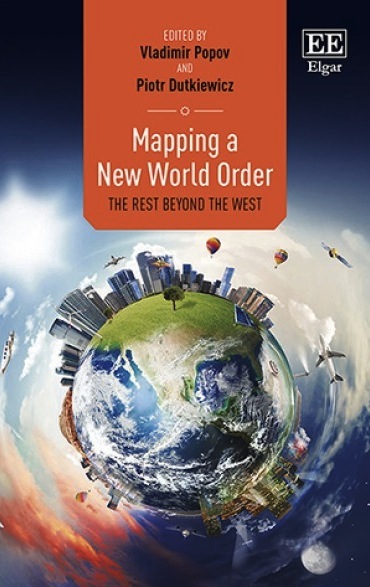
Mapping a New World Order: The Rest Beyond the West
This book identifies possible factors responsible for the recent rise of many developing countries. It examines how robust these trends actually are and speculatively predicts the implications and consequences that may result from a continuation of these trends. It also suggests possible scenarios of future development. Ultimately, it argues that the rise of ‘the Rest’ would not only imply geopolitical shifts, but could lead to proliferation of new growth models in the Global South and to profound changes in international economic relations.
China is beginning to overtake the US as the world’s largest economy, and a few other East and South Asian countries are steadily increasing their presence in global markets. The authors of this book agree that the contours of a ‘different’ economic and political order are emerging as the West is effectively struggling to hold onto its global pre-eminence. Meanwhile, the torch is slowly (albeit uncertainly) passing to a new generation of international players. Some version of a new multilateral order is emerging; an order that is both different from the previous one, but also marked by multiple and significant continuities.
This book identifies possible factors responsible for the recent rise of many developing countries. It examines how robust these trends actually are and speculatively predicts the implications and consequences that may result from a continuation of these trends. It also suggests possible scenarios of future development. Ultimately, it argues that the rise of the 'Rest' would not only imply geopolitical shifts, but could also lead to proliferation of new growth models in the Global South and to profound changes in international economic relations.
This innovative book is written from a multicultural and multidisciplinary perspective by leading scholars in the field. It will appeal to professionals, PhD students and graduate students alike, namely those in the fields of international relations, political economy, political science, international development and regional studies.
Read table of contents and more information here.



